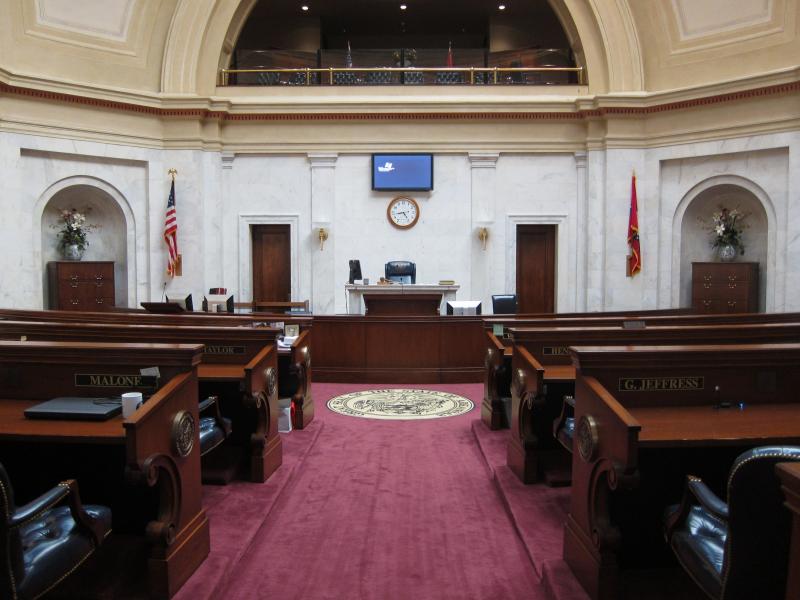
Last week, the Arkansas state Senate narrowly passed Senate Bill 571, legislation that eliminated the bottom income tax bracket, created a new Earned Income Tax Credit, and raised taxes on current smokers and those looking to quit. The bill conflicts with the intent of the supermajority requirement to raise taxes and increases the state’s reliance on a volatile and declining revenue source.
The bill does include two provisions that provide tax relief to Arkansans, including an increase in the state standard deduction and the elimination of the bottom 2 percent income tax bracket. These reforms, however, are negated by a proposed tax increase on cigarettes, electronic cigarettes, and vapor products. Balancing the budget on the backs of a shrinking groups of low-income consumers is misguided tax policy.
SB 571 seeks to establish revenue neutrality by bolstering revenue streams through increased excise taxes. Starting with a new 20 percent per-pack retail tax, the bill increases taxes on cigarettes by 105 percent. With an average pack of cigarettes costing $6.05, the tax would bring the average total tax to $2.36 per pack, positioning the state to have the highest tobacco tax in the region. Such a disparity would further encourage cigarette smuggling from states like Missouri ($0.17), Tennessee ($0.62), and Mississippi ($0.68). Cigarette smuggling has historically undermined revenue generation efforts in states who have boosted their cigarette excise taxes because consumer seek out cheaper alternatives across borders or on the black market. In fact, between 2009 and 2013 just 3 out of 32 tobacco tax hikes realized their revenue projections.
Adding insult to injury, the bill slaps a 68 percent “sin” tax on the sale of electronic cigarettes and vapor products. This misguided policy subsequently discourages traditional cigarette smokers from making the switch to vapor products and threatens the well-being of those who have already used vapor products to quit smoking. These devices have been found to be at least 95 percent less harmful than traditional cigarettes, according to Public Health England.
The proposed tax hikes not only threaten public health and state revenue streams, but they dismantle the heart of the legislation. While the elimination of the 2 percent tax bracket provides for $16.8 million in relief and the increase in the standard deduction provides $41.3 million in relief, an ATR assessment of the bill projects that the new taxes on cigarettes, e-cigarettes and vapor products increase taxes by at least $100 million a year. A large portion of this tax money will be pulled from those income brackets this legislation claims to help, as they disproportionately use these products.
In addition to the standard deduction increase and the 2 percent income tax bracket removal, the bill uses much of the revenue generated by the excise tax increase to pay for the creation of a larger refundable Earned Income Tax Credit (EITC). The new tax revenue from tobacco is directed to the general fund and then appropriated through the EITC. Policy merits of an EITC aside, the EITC is not a tax cut or tax relief; it is a direct expenditure and government spending that may exceed a taxpayer’s liabilities for the year. Even for those that support a robust EITC program, the fact that a declining revenue source that does not fully cover the cost of the program is being cited as the funding source should be concerning for the long-term viability of the program.
Arkansas voters passed one of the strongest protections against tax increases in the country through Amendment 19 to the state Constitution. It guarantees that tax hikes can only be implemented through a three-fourths vote by the legislature. The drafters of SB 571 attempt to get creative, however, by positioning the cigarette tax hike as a “new” tax, exempting it from Amendment 19 protections. The Amendment only prevents tax increases for taxes that existed when the protection passed, several decades ago. Although a cigarette tax existed, it did not exist at the retail level in the way created by this bill. It’s purely a gimmick designed to circumvent the intent of voters and lower the threshold required for the passage of a tax increase from three-fourths to a simple majority. For historical context, the past five cigarette tax increases all honored the will of the people of Arkansas, being approved by a supermajority of the legislature.
Having passed the Senate by 18-14 last week, the bill is moving to the state House, where it will be considered by the House Revenue and Taxation Committee tomorrow. The Committee is chaired by Representative Joe Jett, who has publicly expressed his opposition to the legislation.
Americans for Tax Reform opposes Senate Bill 571 as written, a cash grab creatively designed to raise net taxes on Arkansas taxpayers in the name of low-income tax relief. Instead of engaging in budget gimmicks, the legislature should focus on broad based tax relief without increasing the overall burden and cost of government.

